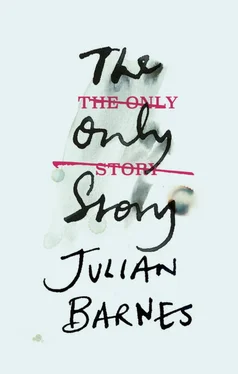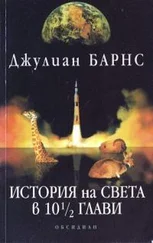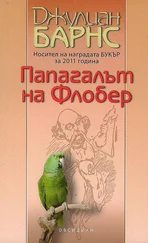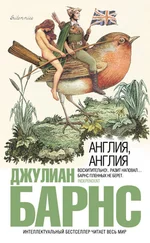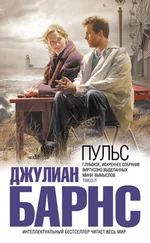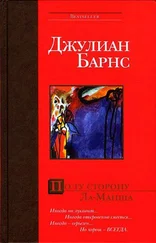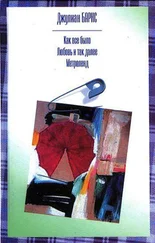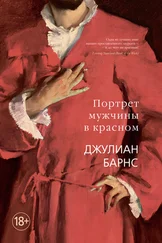You could get through a life, if you were careful, and lucky, without having your courage much tested – or rather, your cowardice revealed. That time Macleod had attacked him in the book room he’d certainly run for it, after throwing one ineffective punch in reply to Macleod’s three. And when he’d scuttled out of the back door, he hadn’t been trying to find a policeman, either. He had made the probably correct calculation that Macleod was drunk enough and angry enough to go on attempting to hit him until he succeeded. Despite being younger, and reasonably fit, he hadn’t fancied his chances at close quarters. It wasn’t like facing an under-12, under-6-stone schoolboy of equal timorousness.
And then again, more recently. ‘Recently’ in the sense of ‘fifteen or twenty years ago’. That was how the mind, and time, worked nowadays. He’d been back in England for only a few years. He’d visited Susan a couple of times, bringing no visible pleasure or benefit to either of them. One evening, the phone rang. It was Martha Macleod, now – for a long time – Mrs Something-or-Other.
‘My mother has been temporarily sectioned,’ was her opening line.
‘I’m very sorry to hear that.’
‘She’s in…’ and cited the mental health department of a local hospital. He knew its reputation. A doctor friend, with professional dryness, had once told him, ‘You have to be really mad to get in there.’
‘Yes.’
‘It’s a terrible place. It’s like Bedlam. Lots of people screaming. Either that or they’re zombified with tranquillizers.’
‘Yes.’ He didn’t ask which category Susan was in.
‘Would you go and see her? And see the place?’
He thought: this is the first time in a quarter of a century that Martha has asked anything of me. Disapproval at first; quiet superiority thereafter; though she had always been polite to him. She must be at the end of her tether, he thought. Well, he had been there in his time too; and knew how elastic the end of a tether could be. So he considered her request.
‘Maybe.’ He was going up to town in a couple of days, as it happened. But he wasn’t going to tell her that.
‘I think it would do her good to see you. In the place she’s in.’
‘Yes.’
He’d left it like that. After he put the phone down, he thought: I looked after her for years. I tried my best. I failed. I handed her over to you. So it’s your turn now.
But he didn’t believe his own bitter logic. It was like saying, ‘Find a policeman, find a policeman.’ The truth was, he couldn’t face it: he couldn’t face seeing her, the remnant of her, whether screaming or zombified, among the screaming and zombified. He tried to think of his decision as an act of necessary self-protection; also, protection of the picture he had of her in his head. But he knew the truth. He was scared of going there.
As he grew older, his life turned into an agreeable routine, with enough human contact to sustain and divert, but not disturb, him. He knew the contentment of feeling less. His emotional life was recast as a social life. He was on nodding and smiling terms with many, as he stood in his leather apron and tweed cap in front of a colour photograph of happy goats. He prized stoicism and calm, which he had achieved less through some exercise of philosophy, more from a slow growth within him; a growth like coral, which in most weathers was strong enough to keep out the ocean breakers. Except when it wasn’t.
So his life consisted mainly of observation and memory. It was not a bad mix. He viewed with distaste those men in their sixties and seventies who carried on behaving as if they were in their thirties: a whirl of younger women, exotic travel and dangerous sports. Fat tycoons on yachts with hairy arms round thin models. Not to mention respectable husbands who, in a turmoil of existential anguish and Viagra, left their wives of several decades. There was a German expression for this fear, one of those concertina words the language specialized in, which translated as ‘the panic at the shutting of the doors’. He himself felt untroubled by that shutting; though he saw no reason to hurry it up.
He knew what they said of him locally: Oh, he likes to keep himself to himself. The phrase was descriptive, not judgemental. It was a principle of life the English still respected. And it wasn’t just about privacy, about an Englishman’s home – even a pebbledash semi – being his castle. It was about something more: about the self, and where you kept it, and who, if anyone, was allowed to fully see it.
He knew that no one can truly hold their life in balance, not even when in calm contemplation of it. He knew there was always a pull, sometimes amounting to an oscillation, between complacency on one side and regret on the other. He tried to favour regret, as being the less damaging.
But he certainly never regretted his love for Susan. What he did regret was that he had been too young, too ignorant, too absolutist, too confident of what he imagined love’s nature and workings to be. Would it have been better – in the sense of less catastrophic – for him, for her, for them both, if they had indeed had some ‘French’ relationship? The older woman teaching the younger man the arts of love, and then, concealing an elegant tear, passing him out into the world – the world of younger, more marriageable women? Perhaps. But neither he nor Susan had been sophisticated enough for that. He had never known sophistication of the emotional life: anyway, to him it sounded like a contradiction in terms. So he didn’t regret that either.
He remembered his own early attempts to define love, back in the Village, alone in his bed. Love, he had ventured, was like the vast and sudden uncreasing of a lifelong frown. Hmm: love as the end of a migraine. No, worse: love as Botox. His other comparison: love feeling as if the lungs of the soul had suddenly been inflated with pure oxygen. Love as barely legal drug use? Did he have any idea what he’d been talking about? Some years later, as it happened, he’d been with a group of friends when an excited junior doctor joined them, having just ‘liberated’ a cyclinder of nitrous oxide from the hospital where he worked. They were each given a balloon, which they inflated from the cylinder then held tightly by the neck. Emptying their lungs as much as they could, they put the balloon to their lips, and released into themselves the roar and lift of a sudden, rushing, eye-blinking high. But no, it hadn’t reminded him at all of love.
Still, were the professionals any better? He took his little notebook from the desk drawer. He hadn’t written anything new in it for a long time. At one point, frustrated by how few good definitions of love he could find, he started copying down at the back all the bad definitions. Love is this, love is that, love means this, love means that. Even quite well-known formulations said little more than, in effect: it’s a soft toy, it’s a puppy dog, it’s a whoopee cushion. Love means never having to say you’re sorry (on the contrary, it frequently means doing just precisely that). Then there were all those love lines from all those love songs, with the swooning delusions of lyricist, singer, band. Even the bittersweet ones and the cynical ones – always true to you, darling, in my fashion – struck him as the mere counterfactuals of sentimentality. Yes, it was this bad for us, buddy, but it needn’t be this bad for you: such was the song’s implicit promise. So you can listen with sympathetic complacency.
Here was an entry – a serious one – which he hadn’t crossed out in years. He couldn’t remember where it came from. He never recorded the writer or the source: he didn’t want to be bullied by reputation; truth should stand by itself, clear and unsupported. This one went: ‘In my opinion, every love, happy or unhappy, is a real disaster once you give yourself over to it entirely.’ Yes, that deserved to stay. He liked the proper inclusivity of ‘happy or unhappy’. But the key was: ‘Once you give yourself over to it entirely.’ Despite appearances, this wasn’t pessimistic, nor was it bittersweet. This was a truth about love spoken by someone in the full vortex of it, and which seemed to enclose all of life’s sadness. He remembered again the friend who, long ago, had told him that the secret of marriage was ‘to dip in and out of it’. Yes, he could see that this might keep you safe. But safety had nothing to do with love.
Читать дальше
